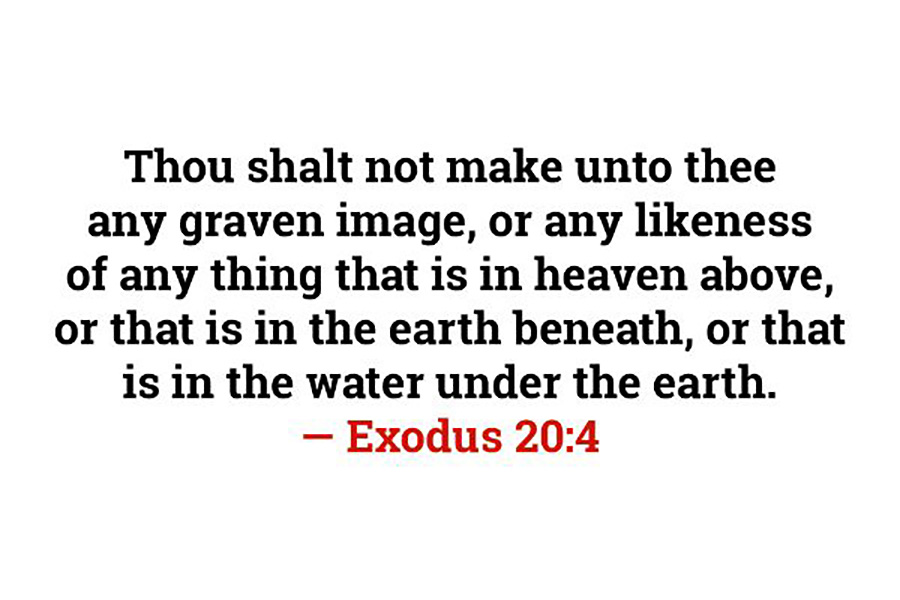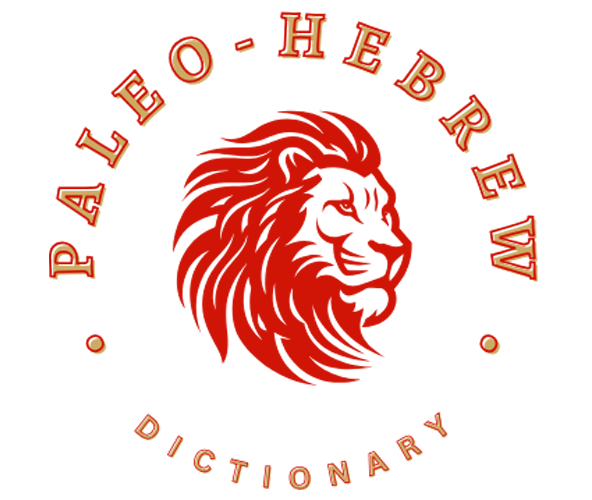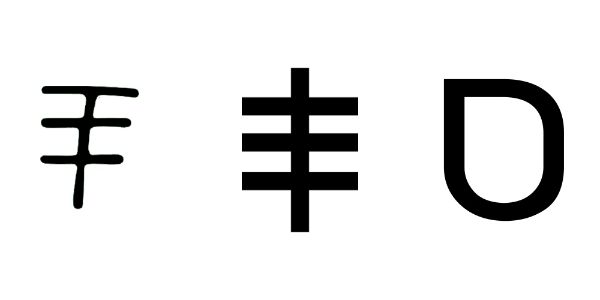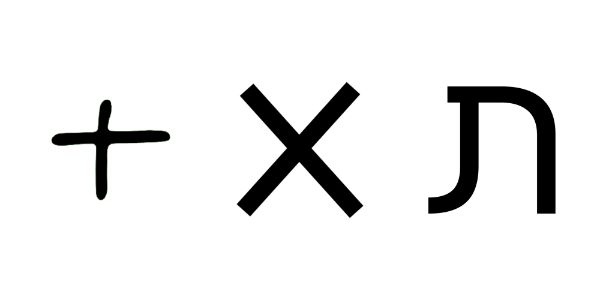The word al (𐤀𐤋) means “deity” and is the title used for the chief of most Semitic pantheons.
The Paleo-Hebrew language or the original language of the Ābarayam is one spoken with an emphasis on the rauakh (breath, wind, spirit). With the language of the Ābarayam, each letter has a meaning and a number associated with it that adds meaning to each word they’re used with. Below you will be able to learn more about the letter in Ancient Hebrew, Yiddish Hebrew, Greek, and much more.
Letter Meanings
| Letter | Meaning |
|---|---|
| 𐤀 (a) – ah | Ox, strength, leader Prefix: Turns word into first-person |
| 𐤋 (l) – la | staff, goad, control, toward, protect, authority, bind, yoke, lead |
| Ābarayat Number | 31 = 1 (a) + 30 (l) |
| Hebrew Gematria | 21 = 1 (a) + 20 (l) |
| English Gematria | 78 = 6 (a) + 72 (l) |
| Simple Gematria | 13 = 1 (a) + 12 (l) |
Based on the meaning of the letters the word could be defined as:
- “strength of staff”
- “strength to control”
- “strength to protect”
- “strength of authority (power)”
- “strength to bind”
- “strength to lead”
- “leader of control”
- “leader of protection”
- “leader of authority (power)”
Definitions for 𐤀𐤋 / al
| Language | Word | Transliteration | Pronunciation | Definition |
|---|---|---|---|---|
| Ābarayat | 𐤀𐤋 | al | awl | God, goodly, great, idol, mighty one, power, strong. |
| English | El | el | el | a Northwest Semitic word meaning “god” or “deity”, |
| Hebrew | אֵל | el / al | ale | God or gods |
| Arabic | إله | ‘iilah | e-lah | God |
| Greek | θεός | theos | theh’-os |
Images for 𐤀𐤋 / al


The Title of Al
The name, or title rather, of Al comes from the Ābarayat 𐤀 (alaph) meaning “ox, power, or strength” and 𐤋 (lamad) meaning “staff, goad, control, authority, bind, yoke, or lead”. When you put the letters together for the title it could mean “Power of Leader”, “Strength of Leader”, “Power of Authority”, or “Strength of Authority”.
It is stated that El/Al is a generic term for God but comparing Al progenitor of the Alahayam to An/Anu/Anum progenitor of the Anunnaki, it is probably a title only given to the Supreme Divine Being of our people. Whereas, 𐤀𐤋𐤄 (alah) or 𐤀𐤋𐤅𐤄 (alauah) is used for general gods. However, 𐤀𐤋𐤕 (Alat) is the Mother Goddess while 𐤀𐤋 (Al) is the Father God. This can be seen in other Semitic cultures.
The title 𐤀𐤋 (Al) is used 200 times in the scriptures. However, 𐤀𐤋𐤄𐤉𐤌 (Alahayam) is mentioned 2,500 times in the scriptures. 𐤀𐤋𐤄𐤉𐤌 (Alahayam) is the plural form of 𐤀𐤋𐤄 (alah) and means gods. Though, English monotheists translate it to God.
𐤀𐤋 (Al), translated to El by some in English, is mentioned in our scriptures as the Supreme Creator but referenced as a title for 𐤉𐤄𐤉𐤄 (Yahayah) / 𐤉𐤄𐤅𐤄 (Yahauah). He is mentioned as the Father god in most Semitic religions, including Ugarits, Phoenicians, Ābarayam, Syrians, Paleo-Arabians, Akkadians, Babylonians, Canaanites, and more. This should not be confused with worship of 𐤀𐤋 (Al) but rather they acknowledged He exists and acknowledged that their patron god was a descendant of 𐤀𐤋 (Al).
Also, another title historically associated with 𐤀𐤋 (Al) is 𐤀𐤋 𐤏𐤋𐤉𐤅𐤍 (Al Ālayauan), which is mentioned in the scriptures as the God of 𐤉𐤔𐤓𐤀𐤋 (Yasharaal), which combines 𐤉𐤔𐤓 (Yashar)/𐤉𐤔𐤓𐤄 (Yasharah) and 𐤀𐤋 (Al). This is the same title used by other religions to address the Father god of their pantheons.
Important Historical Figures
One of the most important historical names for our people utilizes the name 𐤀𐤋 (Al). The true name of Israel, 𐤉𐤔𐤓𐤀𐤋 (Yasharaal), sometimes written as Yashar’al, is a combination of 𐤉𐤔𐤓 (Yashar) and 𐤀𐤋 (Al). The name translates to “Righteous of God” or “Upright of God”. 𐤉𐤔𐤓 (Yashar) can also be broken down into 𐤉 (Ya) and 𐤀𐤔𐤓 (Ashar) with 𐤀𐤔𐤓 (Ashar) meaning “call, be blessed, happy, go, guide, lead, or relieve”.
If we follow the same principles as the earlier names then the name would mean “He who is blessed by Al” or “He who is called by Al”, even “He who leads for Al”. If you choose to read the entry about 𐤀𐤔𐤓𐤄 (Asharah) or Asherah then it’s also important to note that Yashara and Ashera are associated with her name too.
Another important name is the progenitor of the Ishmaelites, 𐤉𐤔𐤌𐤏𐤀𐤋 (Yashamaāal). His name is a combination of 𐤉 (Ya), 𐤔𐤌𐤏 (Shamaā), and 𐤀𐤋 (Al). Modern translations say the name means “God hears”, however, if we look at each piece of the name it would say “He hears Al” or “He hears God”, which would make him a prophet of Al.
Lastly, all 𐤌𐤋𐤀𐤊𐤉𐤌 (malaakayam) names include Al in them. This is more than likely because they are His messengers and include His title name in them so people know He sent them.
More Context Notes
- El is a Northwest Semitic word meaning “god” or “deity”, or referring (as a proper name) to any one of multiple major ancient Near Eastern deities.
- Specific deities known as ʼEl or ʼIl include the supreme god of the ancient Canaanite religion and the supreme god of East Semitic speakers in Mesopotamia’s Early Dynastic Period.
- “El” is sometimes used instead of “Al”. It has the same meaning and the Arabic writing is in fact the same. The difference in spelling in English is merely due to the fact that sometimes Arabic speakers pronounce certain sounds slightly differently from one another.
- E usage is predominantly the pronunciation of this word in Egypt and some other North African countries, while the “a” usage is particularly used in the Levant and Gulf region.
Linguistic forms and meanings Notes
- Ēl is listed at the head of many pantheons. In some Canaanite and Ugaritic sources, Ēl played a role as the father of the gods or of creation.
- In some inscriptions, the name ’Ēl qōne ’arṣ (Punic: 𐤀𐤋 𐤒𐤍 𐤀𐤓𐤑 ʾl qn ʾrṣ) meaning “ʼĒl creator of Earth” appears, even including a late inscription at Leptis Magna in Tripolitania dating to the second century.
- In Hittite texts, the expression becomes the single name Ilkunirsa, this Ilkunirsa appearing as the husband of Asherdu or 𐤀𐤔𐤓𐤄 (Asharah) and father of 77 or 88 sons.
- In a Hurrian hymn to ʼĒl (published in Ugaritica V, text RS 24.278), he is named ’il brt and ’il dn, which Cross (p. 39) takes as ‘ʼĒl of the covenant’ and ‘ʼĒl the judge’ respectively.
Amorites Notes
- For the Canaanites and the ancient Levantine region as a whole, Ēl or Il was the supreme god, the father of mankind and creatures. Plus, he fathered many gods, most importantly Hadad, Yam, and Mot, each sharing similar attributes to the Greco-Roman gods: Zeus, Poseidon, and Hades respectively.
- Ēl is named again and again Tôru ‘Ēl (“Bull Ēl” or “the bull god”). He is bātnyu binwāti (“Creator of creatures”), ’abū banī ’ili (“father of the gods”), and ‘abū ‘adami (“father of man”).
- He is qāniyunu ‘ôlam (“creator eternal”), the epithet ‘ôlam appearing in Hebrew form in the Hebrew name of God ’ēl ‘ôlam “God Eternal” in Genesis 21.33.
- He is named ḥātikuka (“your patriarch”).
- Ēl is the grey-bearded ancient one, full of wisdom, malku (“King”), ’abū šamīma (“Father of years”), ’El gibbōr (“Ēl the warrior”).
- “El” (Father of Heaven / Saturn) and his major son: “Hadad” (Father of Earth / Jupiter), are symbolized both by the bull, and both wear bull horns on their headdresses.
Hebrew Bible Notes
- El is a generic word for god that could be used for any god, including Hadad, Moloch, or Yahweh.
- Mark Smith has argued that 𐤉𐤄𐤉𐤄 (Yahayah) / 𐤉𐤄𐤅𐤄 (Yahauah) and El were originally separate, but were considered synonymous from very early on.
- The name 𐤉𐤄𐤅𐤄 (Yahauah) is used in the Bible Tanakh in the first book of Genesis 2:4; and Genesis 4:26 says that at that time, people began to “call upon the name of the 𐤉𐤄𐤅𐤄 (Yahauah)”.
Sanchuniathon
- Philo of Byblos (c. 64–141 AD) was a Greek writer whose account Sanchuniathon survives in a quotation by Eusebius and may contain the major surviving traces of Phoenician mythology.
- Philo states that Ēl (rendered Elus or by his standard Greek counterpart Cronus) is not the creator god or first god. Ēl is rather the son of Sky (Uranus) and Earth (Ge). Sky and Earth are themselves children of ‘Elyôn ‘Most High’.
- El is depicted primarily as a warrior; in Ugaritic sources, Baal has the warrior role and El is peaceful, and it may be that the Sanchuniathon depicts an earlier tradition that was more preserved in the southern regions of Canaan.
Definitions for 𐤀𐤋𐤉 / alay
When adding the 𐤉 (yad) to the end of a word, it creates a possessive of the original word. It can either signify “my…” or identify a member of a nation. For example, 𐤏𐤁𐤓 (Ābar) is the progenitor, but 𐤏𐤁𐤓𐤉 (Ābaray) is the singular descendant of him also known as a Hebrew.
| Language | Word | Transliteration | Pronunciation | Definition |
|---|---|---|---|---|
| Ābarayat | 𐤀𐤋𐤉 | alay | awley | Me |
| English | me | me | mee | the objective case of I, used as a direct or indirect object: |
| Hebrew | אֵליָ | allie | al-lee | Me |
| Arabic | ||||
| Greek |
Images for 𐤀𐤋𐤉 / alay


Definitions for 𐤀𐤋𐤉𐤌 / alayam
When adding the 𐤌 (mayam) after the 𐤉 (yad) to the end of a word, it creates a plural of the original word. It can identify multiple members of a nation. For example, 𐤏𐤁𐤓 (Ābar) is the progenitor, but 𐤏𐤁𐤓𐤉𐤌 (Ābarayam) are the plural descendants of him also known as Hebrews.
| Language | Word | Transliteration | Pronunciation | Definition |
|---|---|---|---|---|
| Ābarayat | 𐤀𐤋𐤉𐤌 | alayam | awla-yawm | violent |
| English | violent | violent | vahy-uh-luhnt | acting with or characterized by uncontrolled, strong, rough force. |
| Hebrew | אֵליָם | elim | al-eem | violent |
| Arabic | ||||
| Greek |
Images for 𐤀𐤋𐤉𐤌 / alayam


Definitions for 𐤀𐤋𐤉𐤕 / alayat
When adding the 𐤕 (tau) after the 𐤉 (yad) to the end of a word, it creates a plural of the original word. It identifies the language or a sign of a nation’s existence. For example, 𐤏𐤁𐤓 (Ābar) is the progenitor, but 𐤏𐤁𐤓𐤉𐤕 (Ābarayat) is the language of him also known as Paleo-Hebrew language.
| Language | Word | Transliteration | Pronunciation | Definition |
|---|---|---|---|---|
| Ābarayat | 𐤀𐤋𐤉𐤕 | alayat | awla-yawt | |
| English | ||||
| Hebrew | ||||
| Arabic | ||||
| Greek |
Images for 𐤀𐤋𐤉𐤕 / alayat


Classification
You can continue your studies of the words by viewing Strong’s entries for:




